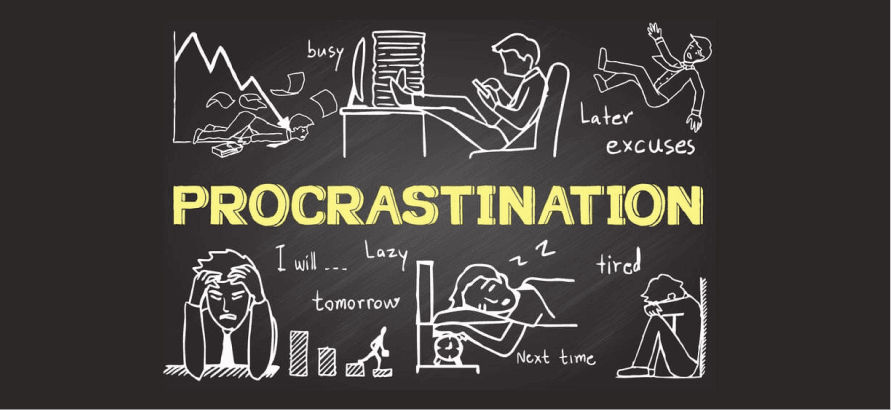Pychyl, in his research and during our interview, identified a number of task characteristics that make you more likely to procrastinate. Tasks that are aversive tend to:
- Be boring
- Be frustrating
- Be difficult
- Lack personal meaning and intrinsic rewards
- Be ambiguous (you don't know how to do it)
The more negative emotions you show toward a certain task, the more likely you are to procrastinate, and according to Pychyl, "any of these [characteristics] can do it".
520
446 reads
The idea is part of this collection:
Learn more about habits with this collection
Conducting market research
Analyzing data to make informed decisions
Developing a product roadmap
Related collections
Similar ideas to
Why you procrastinate
Procrastination is fundamentally an emotional reaction to what you have to do. The more aversive a task is to you, the more you’ll resist it, and the more likely you are to procrastinate.
Aversive tasks tend to: be boring, frustrating, difficult, lack intrinsic rewards, be ...
Make a task less aversive
When you notice yourself procrastinating, use your procrastination as a trigger to examine a task’s characteristics and think about what you should change.
By breaking down exactly which attributes an aversive task has (boring, frustrating, difficult, meaningless, ambiguous...
Procrastination: why we struggle to start
Procrastination is delaying an intended course of action despite expecting negative consequences for the delay.
Possible causes for procrastination:
- Task unpleasantness. Boring, frustrating and aversive tasks.
- Se...
Read & Learn
20x Faster
without
deepstash
with
deepstash
with
deepstash
Personalized microlearning
—
100+ Learning Journeys
—
Access to 200,000+ ideas
—
Access to the mobile app
—
Unlimited idea saving
—
—
Unlimited history
—
—
Unlimited listening to ideas
—
—
Downloading & offline access
—
—
Supercharge your mind with one idea per day
Enter your email and spend 1 minute every day to learn something new.
I agree to receive email updates
